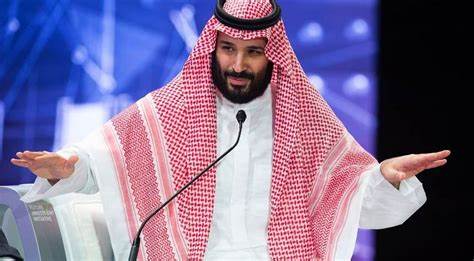
Kremlin intends to ‘follow’ Saudi peace summit it is excluded from
Keep up to Date & Bypass the Big Tech Censorship
Get uncensored news and updates, subscribe to our daily FREE newsletter!
The Kremlin has said it needs to find out the purpose of upcoming talks reportedly planned in Saudi Arabia about the war in Ukraine.
The Wall Street Journal reported on Saturday that Saudi Arabia would invite Western states, Ukraine and major developing countries to the talks. The report stated that Kyiv and Western countries hoped that the talks, which would exclude Russia, can lead to international backing for peace terms favouring Ukraine.
Asked about the report, Kremlin spokesman Dmitry Peskov said: “Russia will follow this meeting. We need to understand what goals are set and what will be discussed. Any attempt to promote a peaceful settlement deserves a positive evaluation.”
| Recommended Books [ see all ] | ||||
|---|---|---|---|---|
 |  |  |  |
 |
However, Peskov also restated Moscow’s position that it currently saw no grounds for peace talks with Kyiv.
“The Kyiv regime does not want and cannot want peace, as long as it is used exclusively as a tool in the war of the collective West with Russia,” he said on a call with reporters.
Saudi Crown Prince Mohammed bin Salman has previously expressed a readiness to mediate in the conflict.
Ukrainian president Volodymyr Zelensky has rejected the idea of a ceasefire now that would leave Russia in control of nearly one-fifth of his country.
Meanwhile, the Taiwanese foreign minister has warned that China cannot be trusted to broker peace between Russia and Ukraine when it is threatening to invade Taiwan.
“On the one hand, China has been threatening Taiwan; on the other hand, they were talking about peace in Ukraine,” Joseph Wu, Taiwan’s foreign minister, told The Telegraph. “This kind of double standard committed by the Chinese will make China unreliable as a peace negotiator… in Ukraine.”
Beijing has this year stepped up its military campaign to intimidate Taiwan, an island nation with a democratically elected government that China claims as its own.
Warplanes and warships now cross the median line between China and Taiwan – an unofficial water border – or enter its air defence identification zone on a near-daily basis.
As part of wider defence reforms, Taiwan is increasing conscription for males from four months to a year.
The government is discussing various strategies for its defence, including the so-called porcupine principle – to ensure Taiwan can protect itself for long enough until reinforcements arrive.
“The defence of Taiwan is our own responsibility,” said Mr Wu. “We are not asking for the UK or any other country to fight for Taiwan.
“In fact, we have been making more investment and training our soldiers better so that we are more capable of self-defence.”
A number of countries are now banding together to counter growing Chinese aggression.
In March, Australia, UK and US (Aukus) announced further details of the 2021 trilateral security pact that will support Canberra in acquiring nuclear-powered submarines.
Actions such as the UK’s freedom of navigation operations by the Royal Navy are “very reassuring” to Taiwan and like-minded nations in “stressing the importance of peace and stability” in the region, said Mr Wu.


